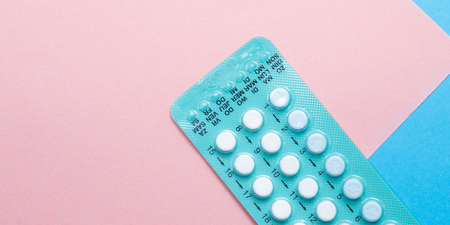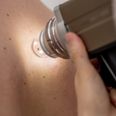Contraception and its many different forms are a talking point for women across the country. With so many different types on the market, coupled with the fact that every woman’s body is different, we take a closer look at all the options that are available to you.
Last week, we explained all the basic facts that you need to know about the Contraceptive Implant including how it works and how effective it is.
Now, we take a look at the Contraceptive Injection.
______________________________________
Eeek…an injection! What on earth is it?
The contraceptive injection has been used worldwide since the 1960s. It contains a progestogen hormone . There is one brand available in Ireland, Depo Provera, which is given every 12 weeks.
How is the injection given?
The injection is usually given into your bum. It is not given during pregnancy so it is important to be sure that you are not pregnant when you have your first injection.
As a result, the first injection is usually given during the first one to five days of a period. If you have the injection within this time frame you will be protected immediately. If you cannot make an appointment within these days you can have the injection any time, as long as you are reasonably sure you are not pregnant. Your nurse or doctor will also advise you to use extra contraception for seven days after the injection. This is called ‘off label use’ and not all practices will allow it.
Note: You will lose protection against pregnancy if you are late in having the next injection.
So how does it work?
The progestogen is injected into the muscle before being gradually released into the bloodstream.
The injection mainly works by stopping the release of the egg from the ovary, which happens during ovulation. It thickens the mucus (yes, that word again!) made by the cervix, which then forms a mucus plug.
This helps to stop sperm getting through to fertilise the egg and it also makes the lining of the womb thinner which makes it unlikely for a fertilised egg to implant in the womb.
How effective is?
The contraceptive injection is very effective. The failure rate is less than 1% when it is used “perfectly”. However, this failure rate could potentially rise to 3% or higher if you are late getting injections.

What are the advantages?
One of the main advantages of the contraceptive injection is that you do not need to remember to take a pill every day. In fact, you don’t have to worry about contraception for two to three months. The contraceptive injection can also be used while breast-feeding, and it helps some of the problems of periods such as PMT, pain and heavy periods.
Often, women who cannot take the Combined Pill use the contraceptive injection.
What are the disadvantages?
The main disadvantage is that once the injection has been given, it can’t be removed. Any side-effects that you experience will last for more than two to three months, until the progesterone has left your body.
Will it make me infertile?
The injection won’t make you infertile, however, after you stop using the injection it can take one or even two years for your fertility to return to normal. If you are planning a pregnancy in the near future, the injection is probably not the best choice for you.
Will it make me fat?
Some studies have linked the Depo injection with modest weight gain, with one study showing that women gained an average of three kilograms after two years of using the injection.

What will it do to my periods?
Like any hormonal contraceptive, the injection can cause your periods to change. Some women have heavy irregular bleeding especially during the first few months of use. After that, for the vast majority of women, periods become much lighter and most women do not get periods at all while on the injection – bonus!
However, if irregular bleeding does persist, it would be advisable to see a doctor as this could be caused by something else.
What are other side-effects?
Apart from the aforementioned change in periods, side-effects are quite uncommon. Possible side-effects include weight gain, increase in acne, fluid retention and breast discomfort. If more than one of these occur, they should settle down over a couple of months. Occasionally, the injection can also cause some pain or swelling at the location that you received the injection.
What about my bone?
Some studies have suggested that the injection can lead to some thinning of the bones. This has not been shown to increase your risk of getting a fracture, and your bones will return to normal once the injections are stopped.
Nonetheless, it is recommended that you have a review with your doctor or nurse every two years so that you can decide if the method is still the best for you.
Who cannot have the contraceptive injection?
Most women can have the injection, though your medical history will be discussed with your doctor or nurse. You should not have it if you have recently had breast cancer or have hepatitis. If you have risk factors for osteoporosis (thinning of the bone) then another method of contraception would be advisable.


















































